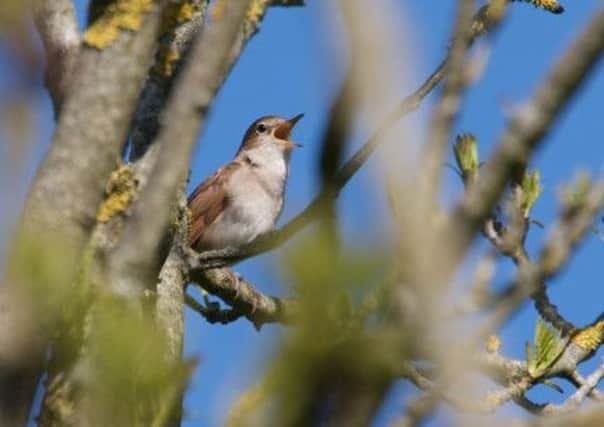Nightingales “will disappear” if New Town is built in Mid Sussex


Next Monday, residents in Twineham, where developer Mayfield Market Towns wants to build 10,000 new homes, are launching a ‘Sight and Sound Birdwatch’ to catalogue the species living there.
Helen Crabtree from the British Trust for Ornithology says the site is an important spot for wildlife: “Not only are Nightingales relatively abundant in the hedges and copses but there are breeding Skylarks, Yellowhammers, Linnets and sometimes Lapwings.
Advertisement
Hide AdAdvertisement
Hide Ad“These are all farmland birds that are suffering declines in Sussex.
“Woodlarks are usually thought of as heathland birds in Sussex, but in this area they have recently been observed breeding in arable farmland. With so little heathland remaining in Sussex, areas of farmland like this could form an essential resource for this schedule one protected species.”
Sussex Wildlife Trust’s adult learning manager, Mike Russell says the area is important because it contains water meadows, hedgerows, farmland and woodland.
He added: “We’ve lost species mainly due to the loss of farmland.
Advertisement
Hide AdAdvertisement
Hide Ad“Species like Tree Sparrows have declined by over 90 per cent, Skylarks have gone down, Yellowhammers – these are all Red Data species - nationally their population has declined by over 50 per cent in 30 years.
“Much of that decline is in the south east.”
Val Bentley from the Sussex Ornithological Society has been surveying Nightingales in the area since the 1990s and says the UK’s Nightingale population has shrunk dramatically, with Sussex now the second most important county for the birds.
She described the New Town site as a “hotspot” for nightingales: “They seem to prefer Blackthorn scrub, in particular Blackthorn scrub near running water and there are plenty of both around here.
“Even if new habitat could be created elsewhere I would imagine it would take about 20 years to establish the scrub to the right sort of level, because the Nightingales will only nest in dense vegetation.
Advertisement
Hide AdAdvertisement
Hide Ad“If a town is built then the habitat will go. Nightingales don’t nest in gardens or towns so they will disappear completely.”
If you would to take part in Twineham’s ‘Sight and Sound Birdwatch’ please visit lambs or email [email protected].